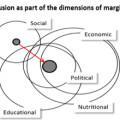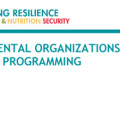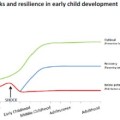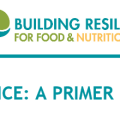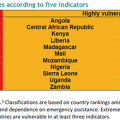Households in developing countries rely on a variety of strategies to cope with shocks. While the importance of social safety nets in protecting impoverished households is widely accepted, the role of gender, in underlying vulnerabilities and response to shocks, remains largely ignored. In their 2020 Conference Brief Gender, Shocks, and Resilience, IFPRI’s Neha Kumar and >> Read more
Highlights from Conference Brief 9: Pastoralism and Resilience South of the Sahara
Pastoralists in the Horn of Africa face five big challenges to their resilience: They are losing land to farmers, irrigation, tourism, and land investments by outside investors. Conflict and violence have disrupted livelihoods and markets and increased vulnerability during drought. Population growth has put heavy pressure on land resources. Among pastoralists, there are large differences >> Read more
Highlights from Conference Brief 15- “Resilience and Exclusion: Development Policy Implications”
A new conference brief by Joachim von Braun and Sukhadeo Thorat makes the case that overcoming exclusion is a complex political agenda with legal, cultural, social, economic, technological, and governance dimensions. Exclusion is a global phenomenon, not just one of developing countries, the authors note, and is fundamentally a human rights issue. Exclusion quite often erodes the resilience capacity of social groups. It brings about unequal access to public services, making excluded people’s efforts to overcome shocks more difficult than those of their counterparts from nonexcluded groups. Moreover, resilience and exclusion are in a vicious dynamic relationship over time. Typically, social exclusion perpetuates the effects of shocks and thereby undermines resilience. The socially excluded groups may collapse or converge to a worse-off steady state after disruptions, taking a protracted time to recover from shocks.
Highlights from 2020 Conference Brief 7: Nongovernmental organizations’ approaches to resilience programming
Stories of nongovernmental organizations (NGOs) providing emergency relief in the aftermath of natural disasters and other humanitarian crises are familiar parts of the news. When NGOs such as CARE or Mercy Corps support medical services in South Sudan or bring food to people affected by Typhoon Haiyan in the Philippines, we are not surprised. Less >> Read more
Highlights from Conference Briefs 10, 17 and 19
There is a wide recognition that building the resilience of the rural poor—the most vulnerable group—requires helping the affected recover from various shocks, such as weather and nutritional shocks.
Highlights from Conference Brief 8- Resilience: a primer
Resilience, a term once reserved for such fields as ecology and psychology, is now being referenced in international development circles. Does it add anything new and useful to development theory and practice or is it simply more jargon? IFPRI senior research fellow John Hoddinott prefaces his conference brief with a definition of resilience in >> Read more
Highlights from Conference Brief 1: Measuring resilience in a risky world
If you can’t measure it, you can’t manage it. In applying a popular business adage to an international development-based resilience framework, researchers Chris Barrett and Derek Headey the case for long-term, high-frequency measurement and analysis of individual, household, and community resilience in the world’s most vulnerable regions. Their conference brief and related 2020 conference paper outline >> Read more

